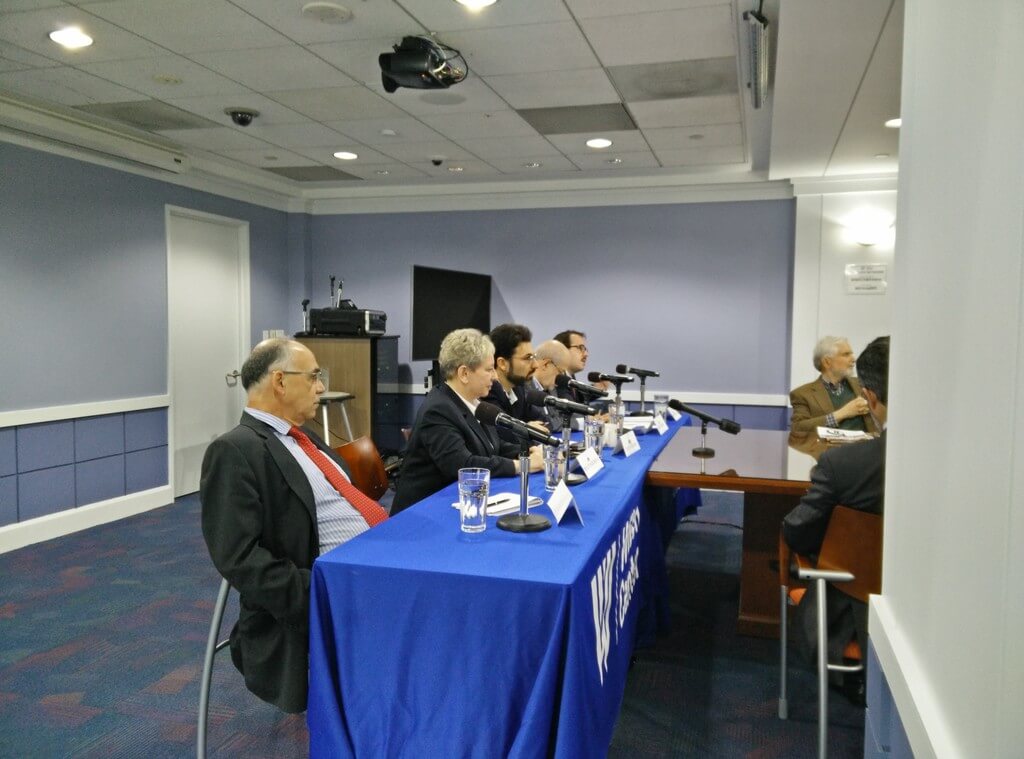WASHINGTON — Russia should collaborate with the United States in upcoming United Nations negotiations to help resolve the Syrian crisis and present united opposition to the Islamic State, a member of a Russian research team said Wednesday.
“Without a political settlement,” said Irina Zvyagelskaya, chief researcher at the Institute of Oriental Studies of the Russian Academy of Sciences, “… we will never be able to work out common approaches on very sensitive and important issues of the Middle East, like building of nationhood, of institutions, of fighting terrorism. We do not have a strategy right now.”
Zvyagelskaya, speaking at the Woodrow Wilson Center for International Scholars, said that the West and Russia must overcome tensions created by the Ukraine crisis to move forward on pushing negotiations to end Syria’s civil war.
The UN peace talks to be held Friday in Geneva are an opportunity for invited leaders of warring Syrian parties to negotiate a ceasefire for all factions other than the Islamic State and al-Nusra Front.
William E. Pomeranz, deputy director of the Wilson Center’s Kennan Institute, predicted the talks will only lead to more talks.
Based on the Russian research delegation’s conclusion, “Russia becomes the status quo power that essentially has to interfere in any struggle that upsets the status quo,” he said. “That didn’t work in the 19th century and it won’t work in the 21st century.”
The Russian researchers emphasized the importance of their country to the peace process.
“The talk just highlighted how difficult it is going to be to resolve the crisis in Syria,” Pomeranz said. “The speakers gave a fair representation of how Russia understands these conflicts… It wants nobody from outside to interfere in the change of (Syria’s) government. Therefore the United States can’t interfere, but Russia can because it’s actually been asked to do so by the (Bashar al-Assad) government.”
Vitaly Naumkin, another expert at the Russian Academy of Sciences in Moscow, said Russia’s approach toward the Syrian crisis has been twofold: to assist the Syrian government in confronting extremists and to form political agreements with the West.
The Russian researchers said the future government of Syria should be secular and democratic with minority rights –a goal far easier in theory than in practice.
“In that case, Syria would be the only secular Arab state in the region,” Pomeranz said. “It would be a very difficult proposition to think that Syria can be put back together in the 21stt century as a secular state after this fighting.”

